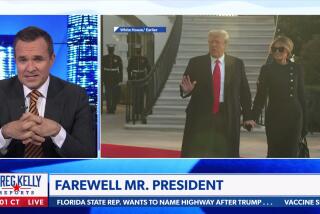Firm Sued Over Screen Saver Ads
The controversy over software patents keeps going and going and going.
The latest conflict arising from a broad patent in the field involves PC Dynamics, a tiny Westlake Village outfit that has raked in a cool $1 million-plus by selling a computer screen saver program featuring the Energizer Bunny, used for years by Eveready to promote batteries.
PC Dynamics was astonished to learn that Software Advertising Corp. in La Costa holds a patent covering, among other things, the use of screen savers for advertising. PC Dynamics wasn’t the only one astonished. “My first reaction was, this was a hoax,” said Bob Metcalfe, a pioneer in network computing who is now publisher of InfoWorld, a leading trade magazine.
The broad nature of the advertising patent, along with a similarly all-encompassing multimedia patent awarded recently to Compton’s NewMedia, raised hackles in the computer industry.
Screen savers are programs that project a changing display across a computer monitor. They were originally intended to prevent images from burning themselves in, but have caught on for their entertainment value. PC Dynamics pays Eveready a royalty for the use of its rabbit.
Last week, PC Dynamics’ President Peter Avritch got a letter from an attorney noting that his client, Software Advertising Corp., holds a 1992 patent covering methods for displaying ads on computer screens without interrupting whatever program is running at the time. The attorney said his client wanted to negotiate a royalty “under an amicable setting.”
Avritch contended that advertising on computer screens is akin to putting your company logo on a coffee mug--a patent for which would be preposterous, he said. But Dave Ekedal, president of Software Advertising Corp., begged to differ: “If it was so obvious, why hadn’t anybody patented it before?”
Metcalfe, meanwhile, has used his InfoWorld column to rail against such patents.
“You should not be able to patent ideas as obvious as this,” he said. “This is another example of how ridiculously out of control our patent office is on matters relating to computers and software.”






